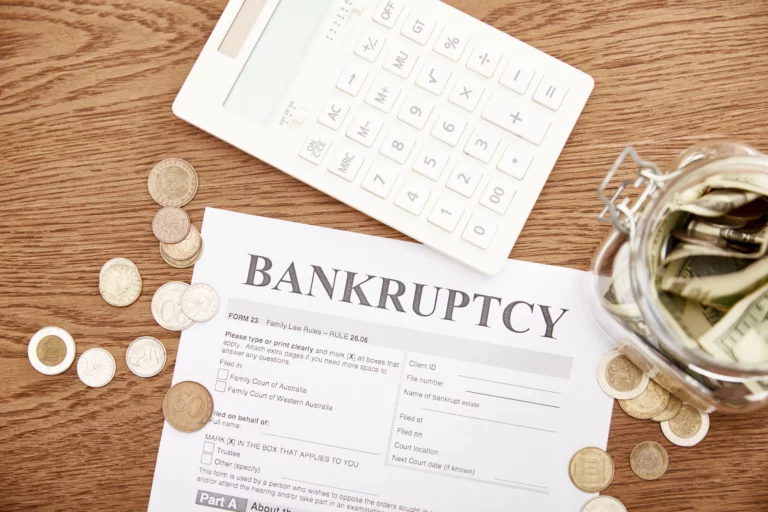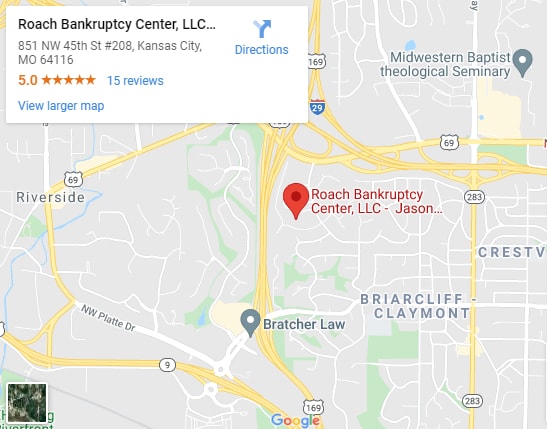Helping You Navigate the Complex World of Bankruptcy Towards a Brighter Financial Future
If you’re struggling with debt and considering bankruptcy as an option, you’re not alone. Bankruptcy can provide relief from overwhelming debt, but it can also have a significant impact on your credit score. It’s important to understand how bankruptcy can affect your credit score and what steps you can take to rebuild it.
At Roach Bankruptcy Center, LLC, we understand the challenges that come with financial difficulties and bankruptcy. Our experienced legal team is dedicated to helping clients in Kansas City, Missouri, navigate the complex bankruptcy process and achieve a fresh financial start.
Below are the concerns and questions you may have that will be discussed in this article:
- What is bankruptcy?
- What is a credit score?
- How important is a credit score in bankruptcy?
- How does bankruptcy affect credit scores?
If you’re concerned about how bankruptcy will impact your credit score, our team can provide the guidance and resources you need to make informed decisions about your financial future. Contact Roach Bankruptcy Center, LLC today to learn more about our legal services and how we can help you through the bankruptcy process.
What is Bankruptcy?
Bankruptcy is a legal process that allows individuals or businesses to seek relief from overwhelming debt. In Kansas City, Missouri, bankruptcy is governed by federal law and is typically filed in a federal bankruptcy court. There are several types of bankruptcy, including Chapter 7 and Chapter 13 bankruptcy, each with its own requirements and benefits.
During the bankruptcy process, a debtor’s assets and liabilities are evaluated, and a plan is developed to either liquidate assets or create a repayment plan. Here are the most common types of bankruptcy:
Chapter 7 Bankruptcy
Also known as liquidation bankruptcy, Chapter 7 bankruptcy is designed for individuals or businesses who are unable to pay their debts. In Chapter 7 bankruptcy, a trustee is appointed to sell non-exempt assets to pay off creditors, and remaining eligible debts are discharged. This is the quickest and easiest way to eliminate debt, but not everyone is eligible, and it can have a significant impact on a debtor’s credit score.
Chapter 13 Bankruptcy
Chapter 13 bankruptcy is designed for individuals with a regular income who have some ability to pay off their debts over time. In Chapter 13 bankruptcy, a repayment plan is developed that allows the debtor to pay off some or all of their debts over a three to five-year period. This type of bankruptcy allows debtors to keep their assets while catching up on missed payments, but it can be a lengthy and complex process.
Regardless of the type of bankruptcy, it can have a significant impact on a debtor’s credit score and financial future. It is important to work with our bankruptcy attorney in Kansas City to navigate the process and make informed decisions regarding your future.
What is a Credit Score?
A credit score is a numerical value assigned to an individual or business that represents their creditworthiness. In Kansas City, Missouri, credit scores are calculated based on information from credit reports, including payment history, debt utilization, credit history length, types of credit used, and new credit inquiries.
Credit scores are used by lenders, credit card companies, landlords, and other entities to evaluate credit risk and determine whether to grant credit, the interest rate, and other terms of credit.
The most common credit score in use in Kansas City, Missouri, and throughout the United States is the FICO credit score, which ranges from 300 to 850, with higher scores indicating better creditworthiness.
How Important Is a Credit Score in Bankruptcy?
Your credit score is a numerical representation of your creditworthiness and plays a critical role in your financial health. A high credit score can make it easier to qualify for loans, credit cards, and favorable interest rates.
A low credit score can make it challenging to secure credit and can result in higher interest rates, fees, or even denial of credit.
If you’re considering bankruptcy, it’s important to understand how it will impact your credit score. While bankruptcy can provide relief from overwhelming debt, it can also have a significant negative impact on your credit score. However, rebuilding your credit score is possible, and working with our Kansas City bankruptcy attorney can be a valuable help in this process.
How Does Bankruptcy Affect Credit Scores?
In Kansas City, Missouri, filing for bankruptcy can have a significant impact on your credit score. Here is some information on how bankruptcy affects credit scores in Kansas City, Missouri, and how the Roach Bankruptcy Center, LLC can help.
- Bankruptcy can cause a significant drop in credit scores, often by 100 points or more.
- The type of bankruptcy filed (Chapter 7 or Chapter 13) and your credit history before filing can impact the severity of the credit score drop.
- Bankruptcy can remain on a credit report for up to 10 years from the date of filing for Chapter 7 and over 3 to 5 years for Chapter 13.
- Bankruptcy can make it more difficult to obtain credit in the future and may result in higher interest rates and fees.
Despite the negative impact, with responsible financial behavior and time, it is possible to rebuild credit after bankruptcy. This may involve obtaining a secured credit card, making on-time payments, and keeping credit utilization low. And this is where Roach Bankruptcy Center, LLC can help. Contact us today and let’s begin your journey to financial stability.
Contact our Kansas City, MO Bankruptcy Law Office Today!
If you’re concerned about how bankruptcy will impact your credit score, don’t panic. While it’s true that bankruptcy can have a negative effect on your credit, there are steps you can take to start rebuilding your credit and improve your financial future.
At Roach Bankruptcy Center, LLC, our experienced attorneys can provide guidance on the best course of action for your individual situation. We can help you understand the different types of bankruptcy and the long-term effects on your credit score.
If you’re ready to take control of your finances and start rebuilding your credit, contact us today to schedule a free initial consultation with one of our bankruptcy attorneys.



